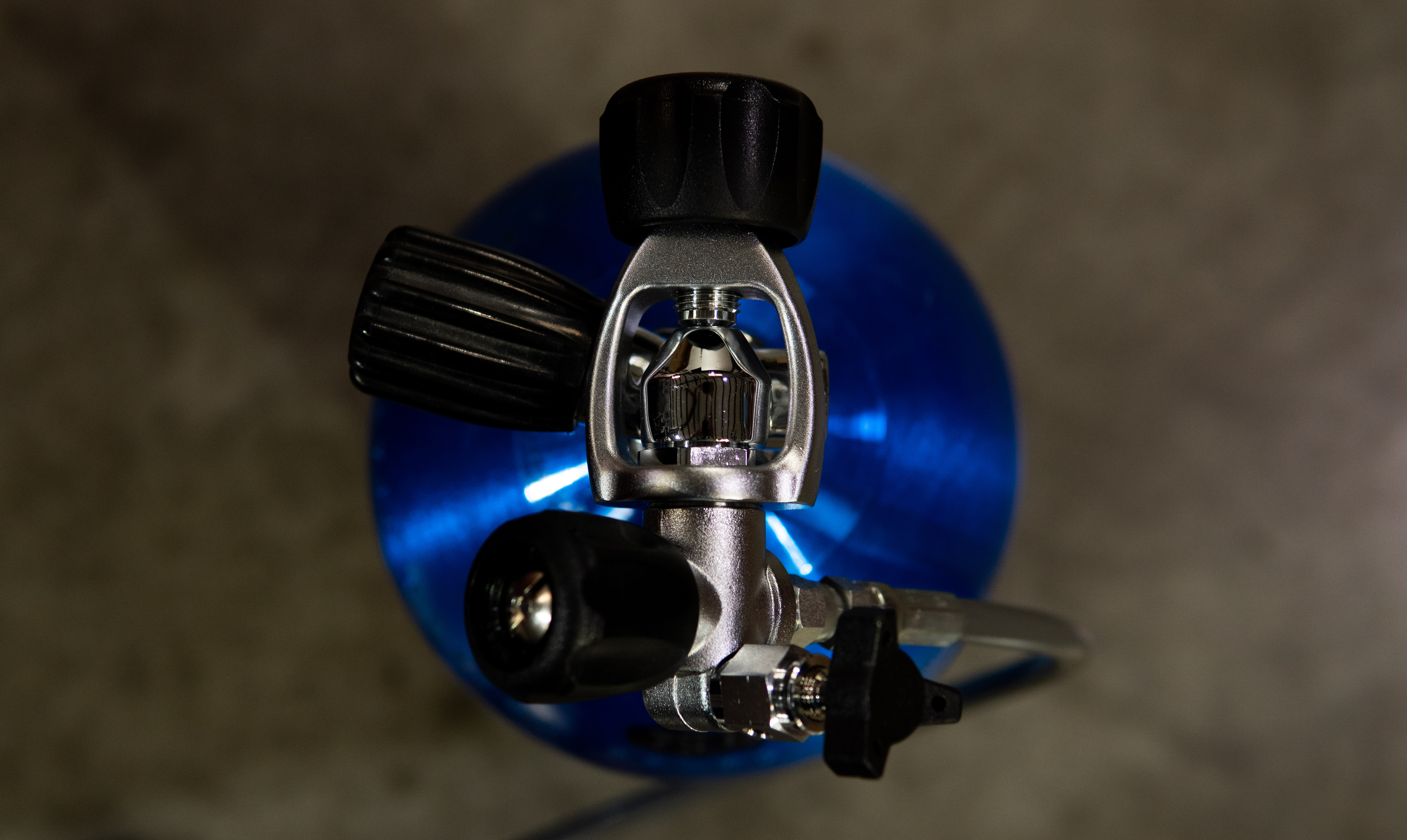When you prepare for a dive, oftentimes the biggest limiting factor is the amount of air that you can bring with you. Filling tanks at dive shops is great for recreational divers, but when you need to dive in deeper water, stay down longer, or travel to remote areas it is time to purchase your own SCUBA air compressor.
Purchasing a compressor solves a lot of your air problems, but it can be difficult to decide what size compressor and what configuration is right for you. This guide will help you decide which factors are most important to you and which air compressor will fit your needs.
The right SCUBA compressor will output Grade-E breathing quality air, be fast enough to fill your tanks in the time you need, and run on the most accessible fuel for you.
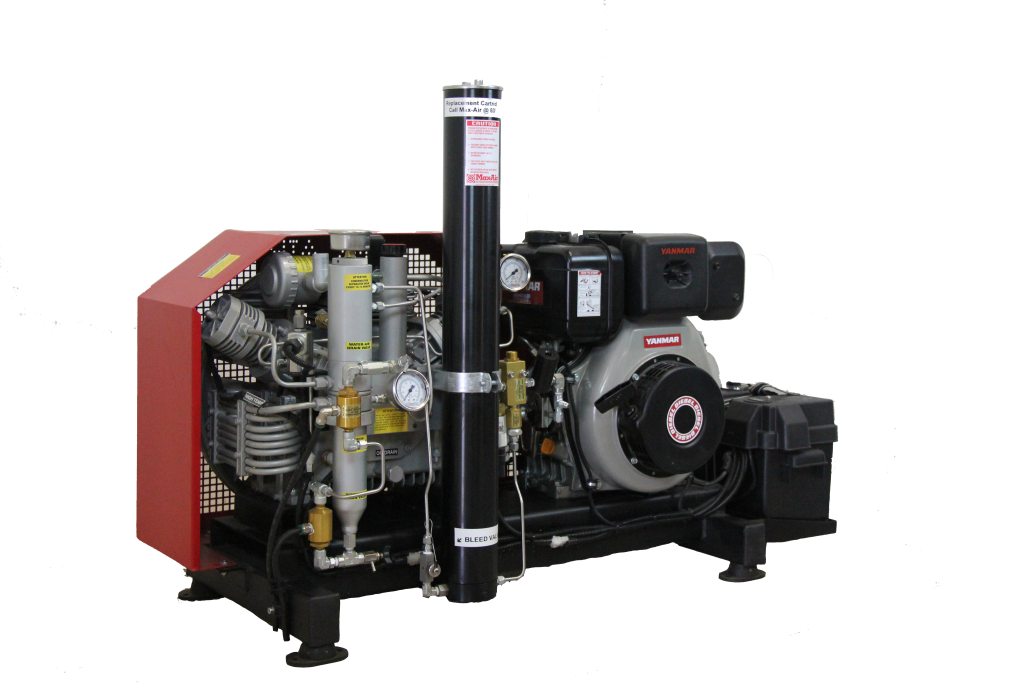
Before we dive into all of the details, here are our general SCUBA compressor recommendations. It’s important to note that each compressor can be configured for several different power sources.
To fill 1 – 2 tank between dives: Max-Air 35
To fill 2-3 tanks between dives: Max-Air 55
To fill 4+ tanks between dives: Max-Air 90
Read on to see our more in-depth recommendations!
Here’s What to Look for in a SCUBA Compressor!
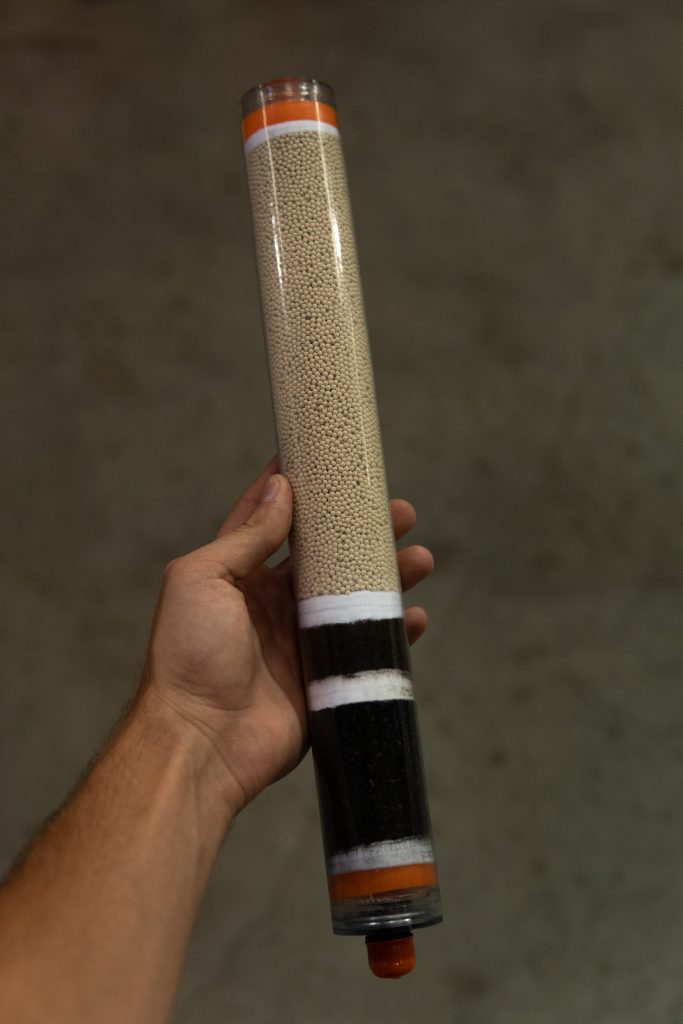
Does it Output Grade E Breathing Air?
The first and most important feature of a SCUBA air compressor is the quality of the air it puts out. For SCUBA, you need a compressor that processes Grade E breathing air. This requires a high-tech filtered purification system that removes impurities in the air that is being compressed and ensures the air in your tank is Grade E quality. This is not an optional feature; your compressor MUST put out quality Grade E breathing air. Don’t try to save money by using a compressor that isn’t designed specifically for SCUBA or high pressure breathing air.
Does it Fill Your Tanks Fast Enough?
The second factor to consider is how much air you will need and how fast you will need your tanks filled. A small compressor like the Max-Air 35 can fill two tanks in under an hour, which is perfect for your average two-person dive. There is a mandatory surface interval time, usually lasting about anhour between dives, which is the perfect amount of time to rest, grab some lunch, and let the compressor refill both tanks before going down again. However, if your dives involve multiple tanks then a small compressor might not be able to fill all the tanks in the rest time between your first and second dive of the day. The last thing you want is to lose valuable bottom time waiting for your tanks to fill!
Does it Have the Power Source You Need?
Air compressors require power, and when you’re on a boat offshore that can be a major limiting factor. The three types of compressors are gas, electric, and diesel. The same model of compressor can be configured to run off of any of these power sources since the motor is separate from the compressor. For example, you can purchase a Max-Air 35 with a gas motor, or you can purchase the same compressor but with an electric motor instead. Here are some of the upsides and downsides of each type of power.
Electric:
Electric compressors plug right into your electric power source. These compressors are quieter than their gas and diesel counterparts, so if noise level is a major concern then electric is your best bet. Electric compressors require less maintenance, but they are also much less portable because they have to be plugged into a power source. Another major consideration is the type of power you have access to: if it is typical 120/240 volt single phase electricity (which the average American home uses) then you will be limited in the size of electric compressor that you can use. In order to use larger electric compressors you must have access to three-phase electricity, which is most often found in commercial buildings and businesses.
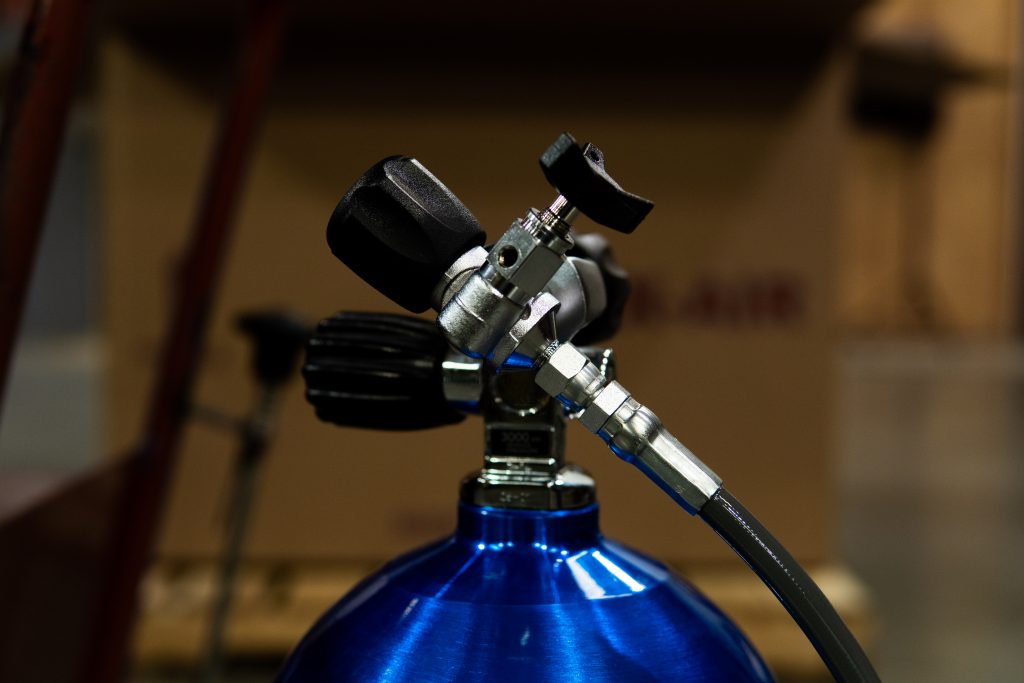
Gas:
Gas compressors have a motor built into the unit that powers the compressor. These units are truly portable and are the most popular option when you need off-the-grid power. Gas compressors are louder than electric compressors but quieter than diesel. Usually gas is easier to find than diesel; however, in some areas of the world diesel may be the main fuel, so deciding what fuel you have easiest access to is an important factor when purchasing your compressor.
Gas engines are cheaper than diesel engines and a gas-powered compressor will usually cost less to operate. Another great advantage is the widespread availability of parts to repair gas motors. Most small motor repair shops will be able to work on a gas compressor while a diesel compressor might require more specialized repair. Gas compressors require a fuel additive and some regular maintenance to stay in tip top shape. Another big drawback is the amount of CO emissions that are produced by the gas motor; these emissions must be kept out of the compressor’s air intake in order to prevent filter degradation and to keep the CO out of the breathing air. This is accomplished by using the provided air intake tube and placing the compressor’s engine’s exhaust downwind of the intake tube.
Diesel:
Diesel compressors are similar to gas compressors but they are bigger, louder, heavier, more durable, and more expensive. Diesel compressors typically have high quality components that are more durable and longer lasting than those in gas compressors. However, they can be more difficult to repair if something does go wrong. Not many small motor shops will have the parts on hand to repair these diesel motors. An advantage is the fuel itself: if you are in an area that relies mostly on diesel for fuel, then getting a diesel compressor is your best bet.
Does it Fit Your Budget?
It’s easy to forget that an air compressor is not just a one-time purchase. Filters, additives, oil, fuel, and maintenance are all ongoing costs that you must be prepared to cover. So when you purchase an air compressor, you want to purchase the highest quality compressor that you can afford and still be able to cover the costs of operation.
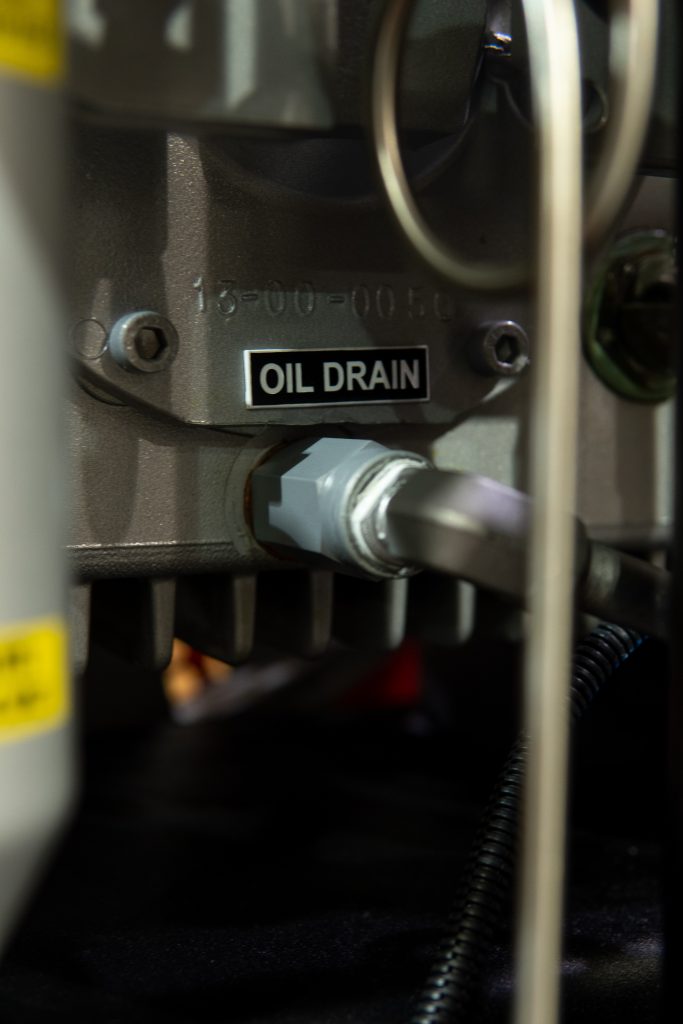
Obviously, larger compressors are more expensive than the smaller ones, and you get what you pay for. Large SCUBA compressors can fill multiple tanks faster than a small compressor can fill a single tank. If you need multiple tanks filled quickly then you must be prepared for the increased cost.
Filters are an expensive component that must be replaced after a certain amount of tank fills. On a small compressor, the filter will process approximately 2500 cubic feet of Grade E breathing air for 10 hours of runtime. On a large compressor such as the Max-Air 90 the filter will process approximately 10,000 cubic feet of Grade E breathing air at 18 hours of runtime. Temperature and humidity have a direct effect on the lifespan of the filter: the cooler the temperature the longer the filter will last. If you are diving in a hot climate, you will have to change the filter more often. Higher temperatures will shorten the processing capacity of the filter.
Can You Operate it Safely?
Your safety should be the priority during every step of choosing your compressor configuration. Always make sure you are purchasing from a reputable source. If you try to find cheaper applications from sources that don’t have a history or a reputation in the industry, you run the risk of purchasing inferior products that could endanger the users and be very costly. Make sure that you follow the manufacturer’s manual when operating the compressor that you purchase. The last thing you want is for a dangerous situation to arise from operator error. Take the time to learn every detail about your compressor and how to safely operate it. If you purchase a quality compressor from a reliable manufacturer and know how to properly operate the compressor, you will be able to enjoy your dives while mitigating the dangers to yourself and your friends.
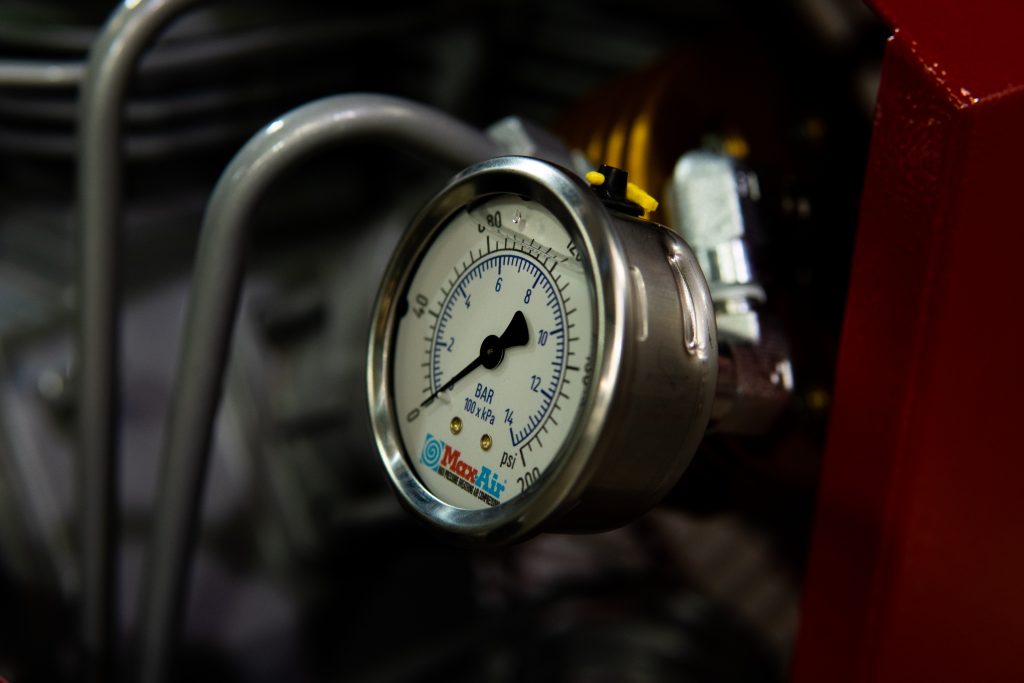
Choosing a SCUBA air compressor can be difficult: compressors are complicated machines that can seem intimidating at first glance. If you take it step-by-step and decide which features are most important for your situation, you can narrow down and find the compressor configuration that is right for you.
Here at Max-Air, we specialize in tailoring high-quality compressors to your exact needs and budget. We give you exactly what you need for your diving setup without any of the superfluous items that often drive up costs. This helps us keep prices low and helps you pay only for what you need! We will gladly provide assistance and answer any questions you might have.
For more information, please email sales@max-air.comor call 830-955-8188 to talk to our sales staff.

